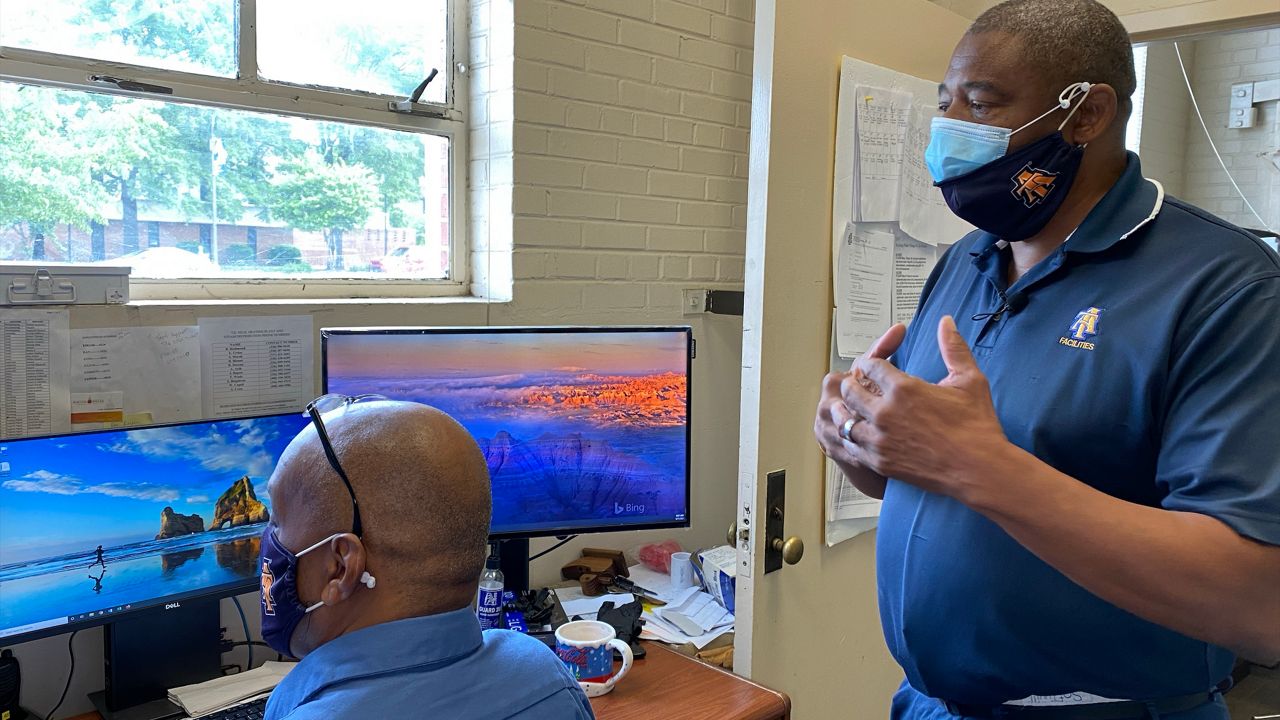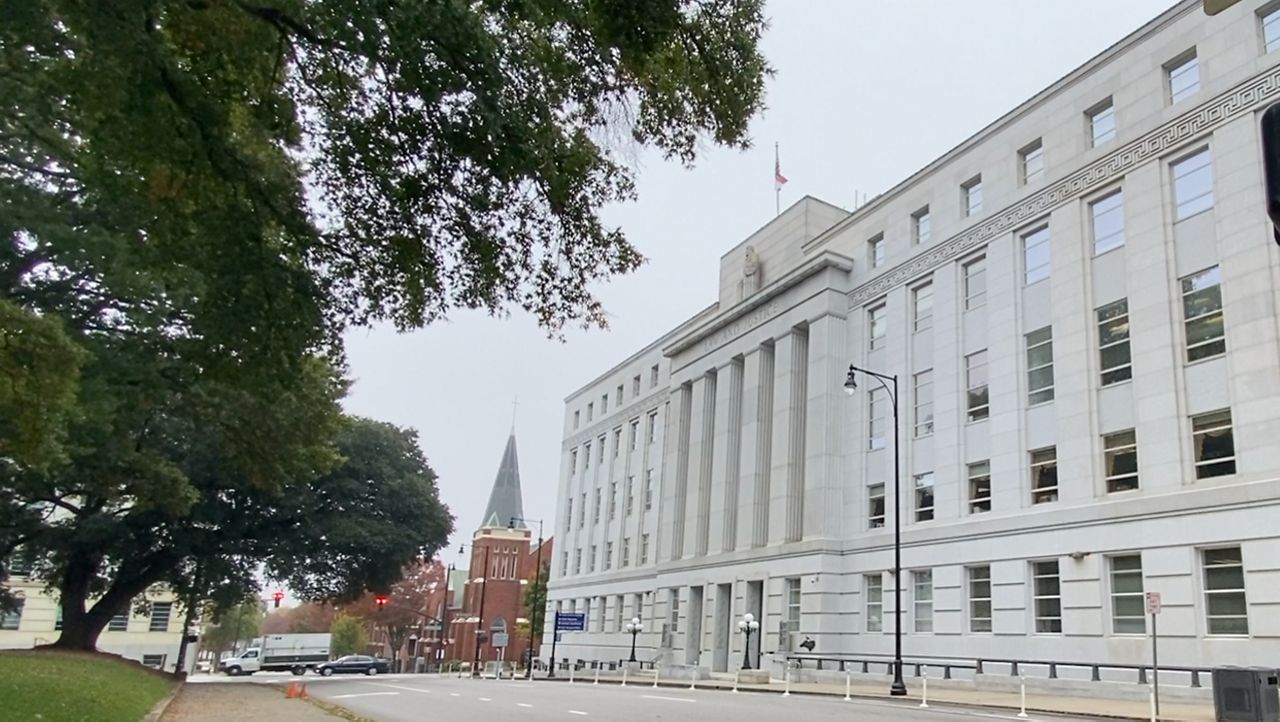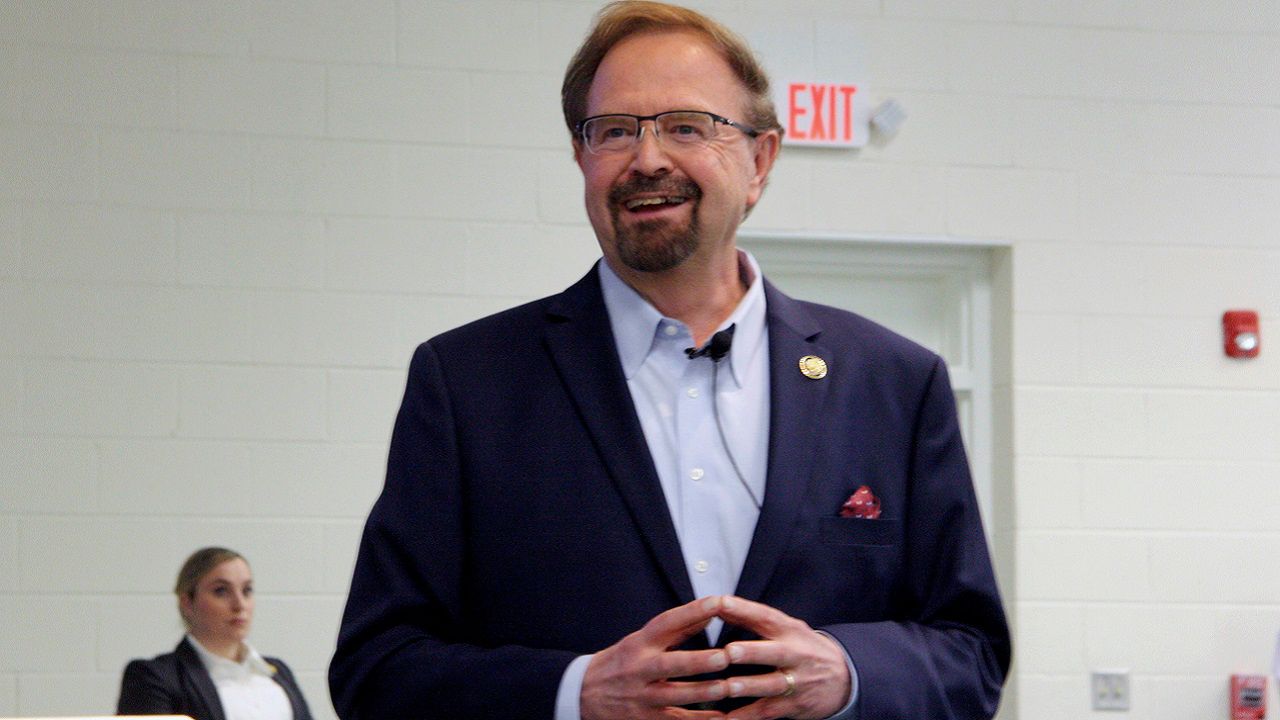GREENSBORO, N.C. — Maintenance managers at one university said Tuesday overdue maintenance is a health and safety issue for students as well as their own staff.
Officials at N.C. A&T, the nation's largest historically Black university by enrollment, said despite a number of new buildings on campus, they still face more than $130 million in overdue maintenance. Much of it involves HVAC systems, electrical work and the steam plant under the direction of Ricky Richmond.
Richmond said the four coal boilers at the plant date to the 1980s. Their piping is damaged from years of service, and they contain asbestos insulation. Richmond and his team will replace one boiler this summer, but he'd rather replace all four.
“The old coal boilers are not as efficient as the fire tube boiler, so it's really going to save us a lot of energy,” he said.

A 2018 survey of 79 HBCUs by the Government Accountability Office found the average private HBCU had $17 million worth of deferred maintenance. For public HBCUs such as N.C. A&T, the figure climbed to $67 million. Thirty of the HBCUs surveyed reported their maintenance backlog had grown between 2015 and 2017.
To help universities catch up, a bipartisan group of lawmakers recently began work on the IGNITE HBCU Excellence Act. Still under development, the legislation would assist HBCUs in securing both public and private funding for repairs, renovations and equipment procurement. North Carolina Congresswoman Alma Adams is among the sponsors.
N.C. A&T's director of planning, design and construction, Bill Barlow, said trying to secure funding for infrastructure projects is not as easy as funding a new building.
“The projects that we're talking about, they aren't pretty projects,” he said. “When someone is riding around campus and if there's $50 million in our infrastructure system, folks don't see it.”
Barlow said the act would be a major help. He said most of the buildings that need work were built between the 1950s and 1970s.
In many cases, the coolant their HVAC systems require is no longer available or has been found to be environmentally hazardous. A number of labs need new fume hoods to help protect students and faculty conducting experiments. Barlow said these and other, smaller issues interfere with students' learning experience on campus and impair the school's ability to benefit society.
Richmond said replacing the university’s four steam boilers would reduce energy consumption and the costs associated with it.
Asked whether the current boilers pose a safety hazard due to their age, he said regular preventative maintenance keeps them from becoming dangerous.
He said this would be the key with any new boilers as well, though he would certainly feel more comfortable working around newer components.









